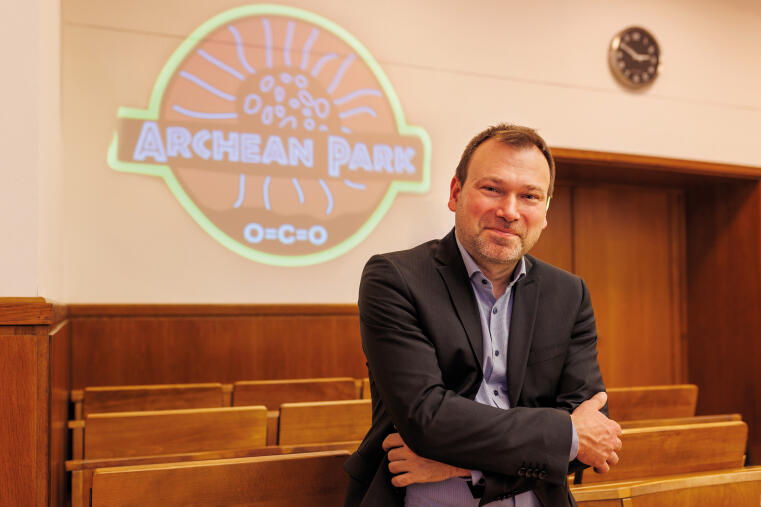In Alexander Fleming’s footsteps

Some interviews need a lot of steering, they need a lot of questions to be asked, and the interviewee has to be constantly nudged along. And there are others which are marked by such a degree of enthusiasm and straightforwardness on the part of the interview partner that all the interviewer has to do is listen attentively and immerse himself in a new world he never encountered before. Dr. Ivan Berg, a professor at the Institute of Molecular Microbiology and Biotechnology at the University of Münster, makes such a conversation possible. He knows exactly what will interest someone who wishes to write a portrait of him: his background, his career, the focus of his work, personal details.
Ivan Berg comes straight to the point and comments on something obvious: his accent. If listeners suspect that he comes from Russia, they are right. Berg was born in 1975 in the Russian capital, Moscow. His career is closely linked with his background: he was about 13 years old when he realised what he wanted to be – a microbiologist. At that age he was given a book about Alexander Fleming, who discovered penicillin, and it kindled his enthusiasm. He immediately joined a club at school in which he could breed bacteria. “Every Saturday I looked enthusiastically into the petri dish to see if anything had grown there,” he recalls.
For almost 30 years Moscow, with its population of 12 million, was the centre of Ivan Berg’s life. His childhood, his studies, his PhD, and his work as a research associate are all connected with the city. In 2007 he headed west – specifically to Freiburg. “In Moscow I couldn’t progress any further in my research,” he says, “and so I applied to Prof. George Fuchs in Freiburg and embarked on a successful period there – one that was actually romantic from a scientific point of view.” With support from microbiologist Georg Fuchs, Berg forged an academic career in Germany. From 2011 to 2016 he received a Heisenberg scholarship, which enabled him to transition from the position he had as a postdoc to his own professorship, which he took up on 1 October 2016.
His professional success, which began in Freiburg at the latest, is still something which Ivan Berg enjoys in Münster. As a specialist for metabolic pathways, his research looks at what conditions an organism processes carbon under, and how it does so. What is important for him is firstly to recognise a problem, secondly to confirm it as such, and thirdly to solve it. This is also the aim of the “Archean Park” project, his most recent success. In October, he and three colleagues from the Universities of Bremen, Potsdam and Duisburg-Essen were awarded an ERC Synergy Grant worth 11.5 million euros. In this project, set to run for six years, the researchers want to study life under primeval conditions such as existed on Earth two-and-a-half to four billion years ago, pursuing the question of the role played by a high concentration of carbon dioxide in the metabolism of microorganisms. Ivan Berg is convinced of his project. “There is no better team than ours – each is the best in the world in their field,” he says.
It is clear to see how proud and delighted he is at receiving the grant. He happily shows a cold alcoholic drink, enriched with the microorganism yeast, which happens to bear the name “Berg”, and which colleagues brought along to celebrate the award of the grant. But there is something else which drives him on. “A grant is something formal. I get more pleasure from discovering something new and finding that one of my hypotheses turns out to be right,” he says.
The great enthusiasm with which Ivan Berg talks about his work almost makes one forget that he is more than just a scientist. His eight-year-old twin children are very good at helping him to forget microbiology, at least for a few hours. “It’s a great delight for me to watch my children grow and, as a result of the changes they experience, to change too, myself. However, Ivan Berg’s nice sentence that you can't get science out of your head shows that his work doesn’t finish when he passes through the Institute door – and that every day he still lives the dream he had as a 13-year-old.
André Bednarz
This article is from the brochure "Twelve months, twelve people", published in February 2024.
Download the entire brochure as a pdf file
To the other articles in the brochure "Twelve months, twelve people".
